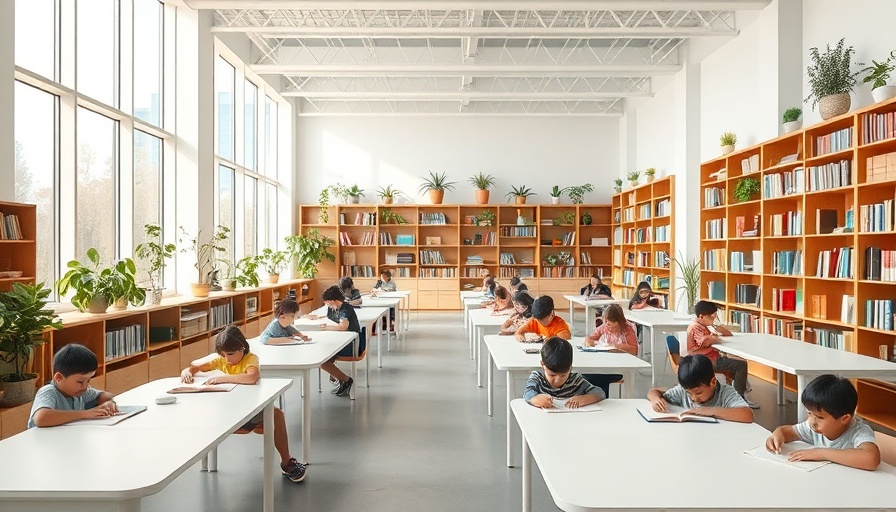
A New Standard in Learning Environments
The Duhovka Elementary School, designed by the architectural firm ra15, showcases a remarkable evolution in educational architecture. Set to complete in 2024, this Czech-English Montessori school embraces the foundational philosophy of the Montessori method—encouraging independence and exploration through thoughtful design. Encompassing an expansive area of 7210 m², the innovative design not only caters to academic needs but also to the psychological well-being of students.
A Thoughtful Design Approach
Located in Prague, the school's design integrates harmoniously with its surroundings. The architects faced spatial constraints, opting for a third-floor extension designed as a recessed structure, minimizing disruption to nearby buildings. Outdoor terraces connected to core learning areas enhance both educational and recreational experiences, emphasizing the importance of a balanced learning environment.
Flexible Learning Spaces
The design demonstrates a significant shift from traditional classroom layouts to more adaptable configurations. Core classrooms are interconnected, which allows students to transition smoothly through different learning activities. This setup directly supports a flexible teaching model, aligning perfectly with the Montessori emphasis on individual learning experiences.
Future Trends in Educational Architecture
As the educational landscape continues to evolve, schools like Duhovka Elementary set a precedent for future developments. Architects and educators alike are recognizing the necessity of creating environments that not only educate but also foster emotional and social growth. The integration of natural light, open spaces, and environmentally friendly materials may soon become standard in educational facilities, representing a shift toward holistic learning approaches.
 Add Row
Add Row  Add
Add 

 Add Row
Add Row  Add Element
Add Element 






Write A Comment